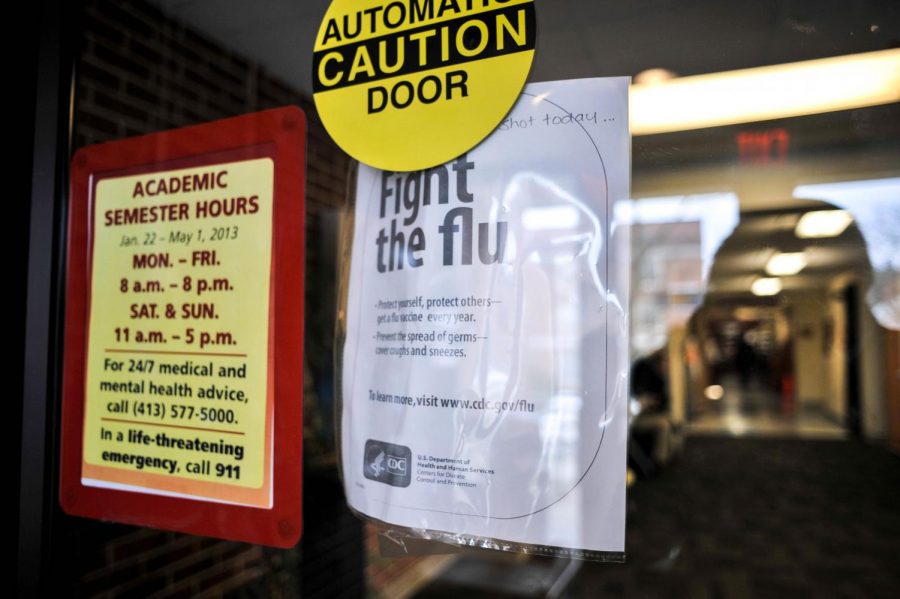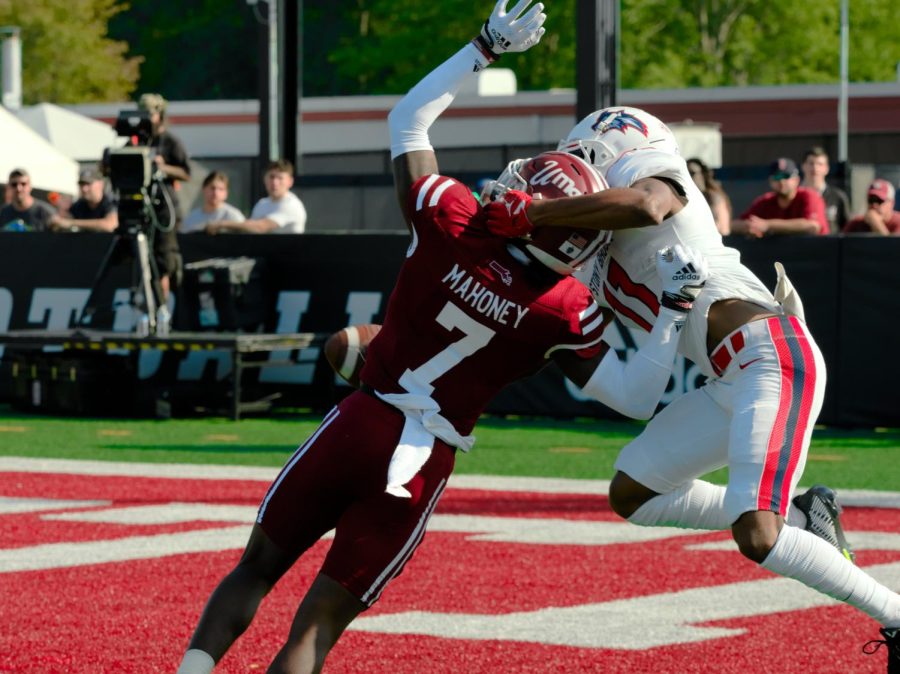The UMass Public Health Promotion Center doesn’t only test for COVID-19 — it also guides students who test positive by offering contact tracing, isolation programs and other resources.
UMass offers free asymptomatic testing to students and staff through the PHPC’s COVID-19 testing program, based out of the Mullins Center. On-campus students are required to get tested twice a week and off-campus students are encouraged to do so. Those who test negative receive their result by email within 24 to 36 hours.
But those who test positive are notified with a phone call from a public health nurse or contact tracing team leader. On this call the individual is asked about symptoms, where they have been and who they’ve been in contact with. The nurse then explains the next steps to take for the next two weeks, including what options the student has to quarantine or isolate themselves and how to get food while doing so.
Isabella Caruso, a master’s candidate in public health and a contact tracing team leader, leads one of five contact tracing teams, each consisting of 10-15 undergraduate or graduate volunteer contact tracers.
“A big majority of what we talk [over the phone] about it is, ‘think back to the past two-to-three days, who were you in contact with, meaning within six feet of for 10 minutes,’” Caruso said. “We really have an open dialog about that and I find that is the best way to gain information about [the spread].”
After this call, the contact tracing team calls their close contacts and refers both those who tested positive and those who have been in contact with someone who tested positive to PHPC workers who are responsible for helping students with quarantine and isolation.
“Currently there are over 200 residence life rooms and rooms in other facilities that are being used for quarantine and isolation,” said Ann Becker, public health director for University Health Services and a clinical associate professor in the College of Nursing. Becker, who leads the contact tracing program and co-directs PHPC, explained that “The students in isolation have tested positive for coronavirus and are either symptomatic or asymptomatic. The students in quarantine are close contacts of students who are confirmed cases of COVID-19.”
The isolation and quarantine spaces on campus are currently at about 13 percent occupancy rate, as many off-campus students decided to isolate in their off-campus housing or return to their family home. Students quarantining on-campus receive four meals a day by UMass Dining delivered contactless to their door, testing brought to their rooms and activity packets. All sick students, on or off campus, receive daily wellness check phone calls to monitor their symptoms and mental health.
Junior kinesiology major Jun Ash quarantined at the UMass campus hotel for two weeks after a coworker got a call that he tested positive. That same day Ash got a call from UMass contact tracing and was helped to quickly find the best place to isolate from his roommates at his off-campus apartment and moved into the hotel that day. Ash, however, tested consistently negative throughout his two-week stay.
“[It’s tough] being isolated by yourself for two weeks, but as a member of the community, a part of your job is to prevent the spreading and the virus, so if that means I have to quarantine for two weeks, then it’s no big deal,” Ash said.
Danny Blumenstein, a sophomore undecided business major, tested positive for coronavirus after his roommate began having symptoms and tested positive. Blumenstein and his roommates decided to isolate in their apartment but used the PHPC as a resource to answer questions as well as get food. They ended up getting food from the Amherst Survival Center, as they were unable to go to grocery stores while isolating themselves.
“UHS was really good. When any of us had any questions, we could call them and they checked in a lot,” said Blumenstein. “In our case we didn’t need much help and we had it pretty much under control, but it seemed like they had a lot of the resources anyone may need.”
Students cannot be punished through the contact tracing program. According to Becker, the program’s accuracy depends on the honesty of infected students regarding their movements and close contacts.
“It’s really important to not forget about COVID-19, go to asymptomatic testing and help the community,”’ Caruso said. “Destigmatize getting sick. It’s no one’s fault and it can and will happen. However, contact tracing is there to help protect yourself and more exposures. We’re here for the people who do test positive, so there’s no shame.”
Leigh Appelstein can be reached at [email protected]. Follow her on Twitter @Lappelstein.




















